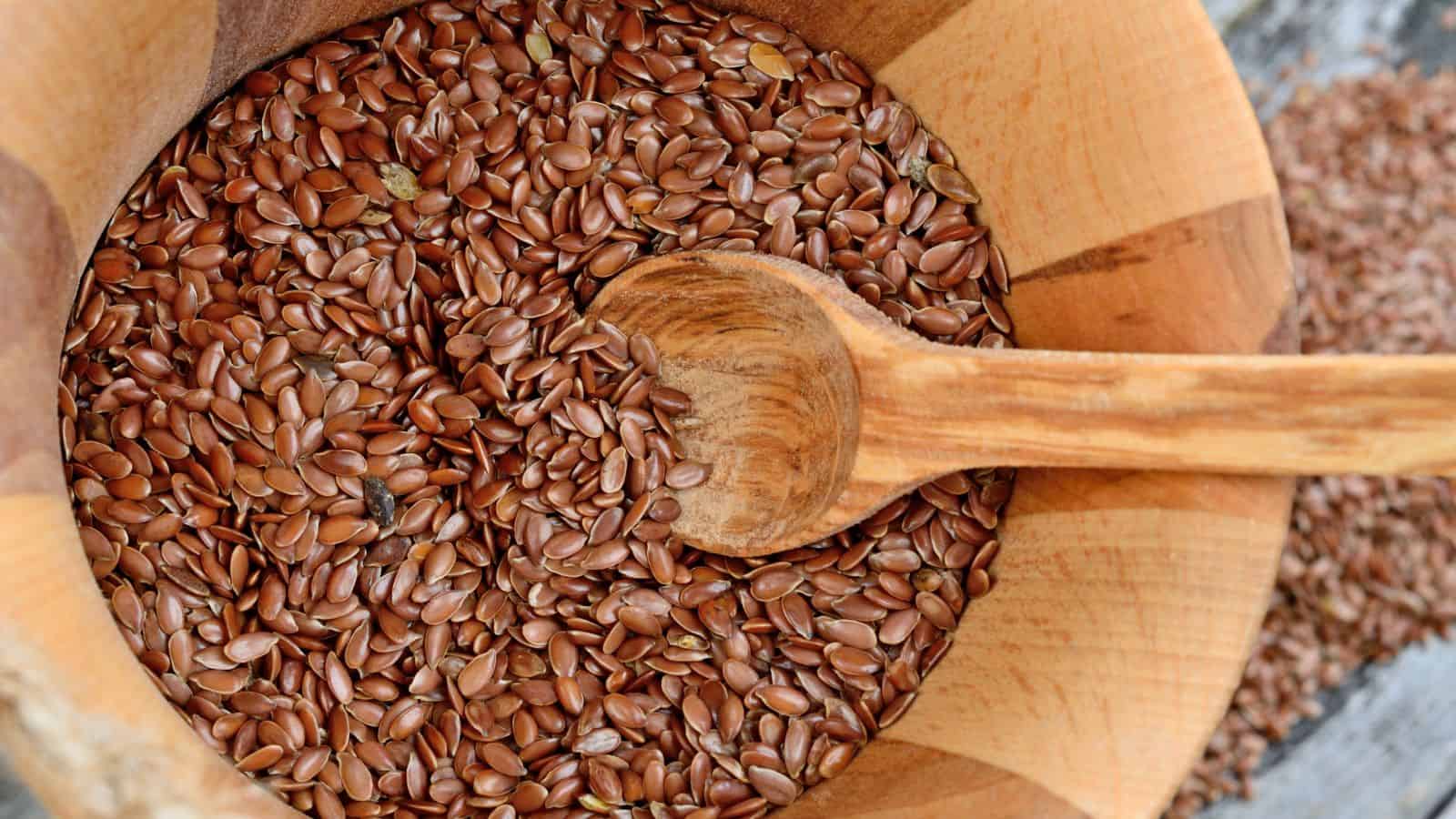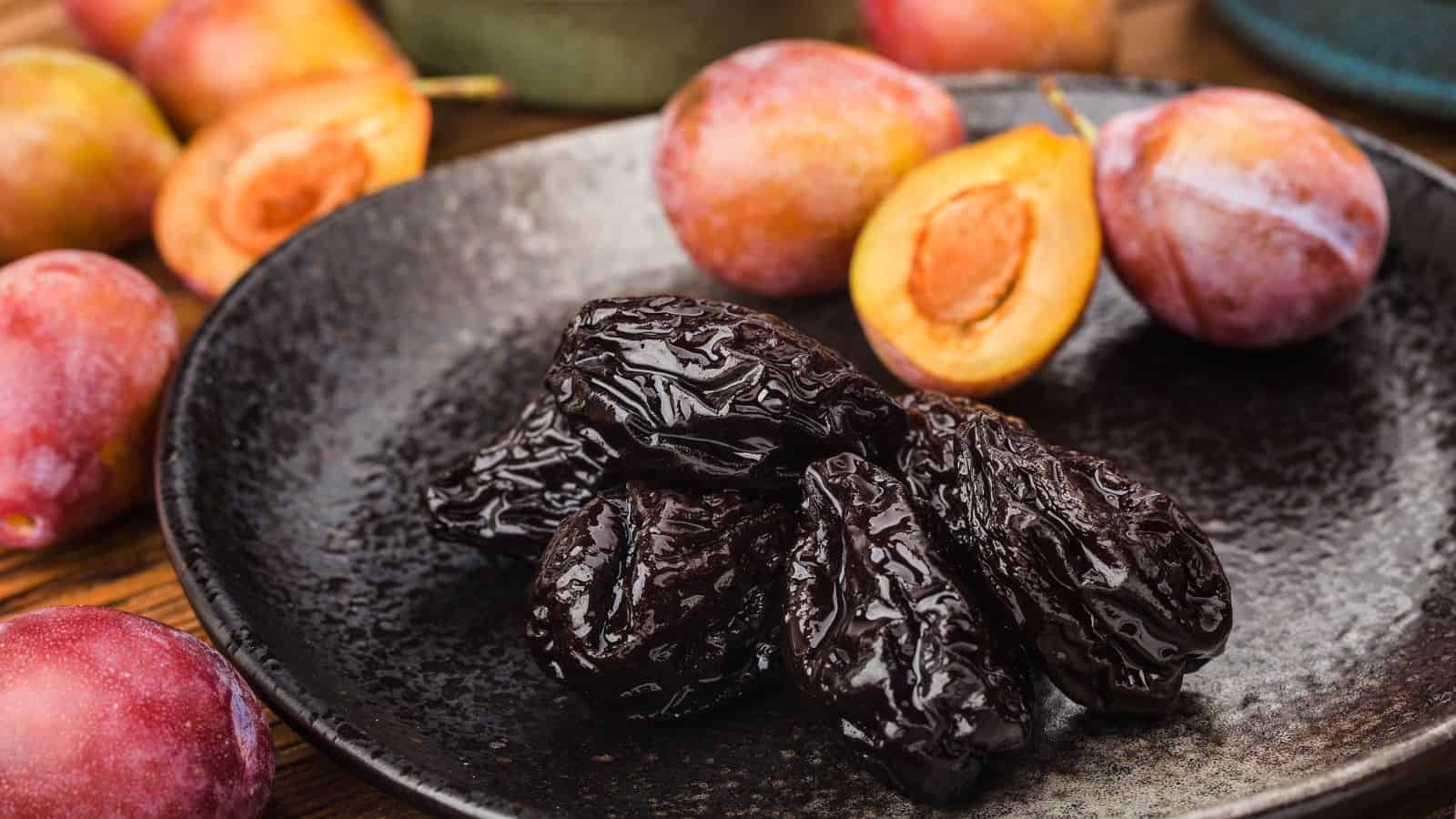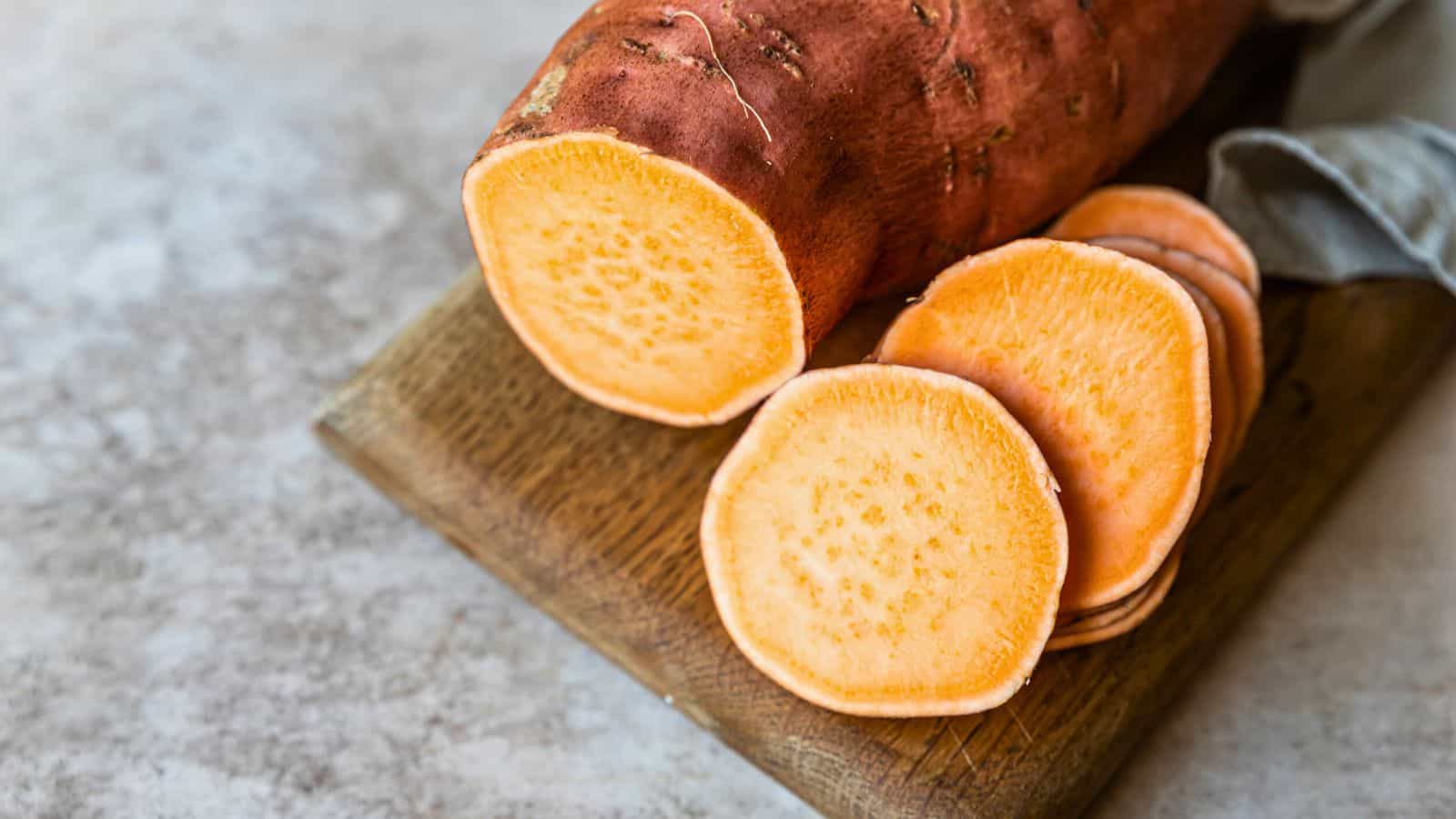Keeping your digestion running smoothly doesn’t have to be complicated. When your bowel movements are regular and comfortable, life just feels better. These 13 foods that promote healthy bowel movements soften stool and add the right amount of bulk, making it easier for things to move along naturally. They also work with your body to support healthy digestion and reduce discomfort.
Making smart food choices is one of the simplest ways to support your digestive health. It’s not about quick fixes or harsh solutions but about steady, gentle support that keeps your system balanced. When you focus on foods that help your bowel movements stay regular, you’re giving yourself a solid foundation for feeling good every day. Small tweaks to what you eat can go a long way toward making your digestive routine easier and more comfortable.

Chia Seeds

Chia seeds are packed with soluble fiber that can absorb up to 10 times their weight in water, forming a gel-like consistency in the digestive tract. This gel helps soften stool and facilitates its movement through the intestines. The high fiber content in chia seeds promotes a feeling of fullness and supports regular bowel movements by increasing stool bulk. Additionally, chia seeds contain omega-3 fatty acids and antioxidants that may support the health of the digestive system. Including chia seeds in the diet can help maintain hydration in the colon and reduce the likelihood of constipation.
Broccoli

Rich in both soluble and insoluble fiber, broccoli supports digestive health by adding bulk to stool and promoting regular bowel movements. The fiber content helps retain water in the intestines, softening stool and easing its passage. Additionally, broccoli contains compounds that may support the gut lining and reduce inflammation, which can contribute to a healthier digestive tract. Incorporating broccoli into meals can encourage balanced digestion and help prevent constipation by stimulating natural intestinal activity.
Leafy Greens

High in fiber and magnesium, leafy greens such as spinach and kale contribute to digestive health by increasing stool bulk and stimulating bowel movements. Magnesium acts as a natural muscle relaxant for the intestinal walls, helping stool pass more easily. The fiber content encourages water retention in the stool, preventing dryness and constipation. Regular consumption of leafy greens supports the maintenance of smooth digestive function and can reduce the likelihood of irregularity by promoting efficient movement through the colon.
Carrots

With a good amount of fiber, carrots support digestive health by adding bulk to stool and encouraging regular bowel movements. The fiber helps retain moisture in the intestines, which softens stool and eases its transit. In addition, carrots contain antioxidants and nutrients that may help maintain the integrity of the digestive tract. Consuming carrots regularly can help prevent constipation and promote efficient digestion by stimulating natural intestinal activity.
Berries

Containing a high amount of dietary fiber, berries such as strawberries and raspberries help regulate digestion by increasing stool bulk and facilitating its passage through the colon. Their water content supports hydration, which is critical for softening stool and preventing dryness. The natural compounds found in berries may also support the health of the intestinal lining and promote a balanced gut environment. Including berries in the diet can contribute to maintaining smooth and regular bowel movements.
Beans and Lentils

Packed with both soluble and insoluble fiber, beans and lentils contribute significantly to digestive health by adding bulk to stool and encouraging its movement through the intestines. The soluble fiber absorbs water, softening stool, while the insoluble fiber helps stimulate peristalsis, the muscle contractions that move waste along. These legumes also contain resistant starches that serve as fuel for beneficial gut bacteria, supporting a balanced microbiome. Regular consumption can help reduce constipation and promote consistent bowel function.
Flaxseeds

Flaxseeds contain both soluble and insoluble fiber, which work together to support digestive health. The soluble fiber absorbs water, forming a gel-like substance that helps soften stool, while the insoluble fiber adds bulk and encourages movement through the digestive tract. Additionally, flaxseeds are rich in omega-3 fatty acids and lignans, which have anti-inflammatory properties that may benefit the gut lining. Including ground flaxseeds in the diet can promote regularity and ease bowel movements, making them a valuable addition for those seeking to improve digestive comfort.
Oats

Oats are a rich source of beta-glucan, a type of soluble fiber that absorbs water and forms a viscous substance in the gut. This action helps soften stool and supports smooth passage through the intestines. The fiber in oats also increases stool bulk, which stimulates peristalsis, the wave-like muscle contractions that move food through the digestive system. Regular consumption of oats can help reduce symptoms of constipation and promote digestive balance. Oats also contribute to maintaining a healthy population of gut bacteria, which plays a key role in digestion and bowel function.
Yogurt

The presence of live bacterial cultures in yogurt plays a key role in maintaining a balanced gut microbiome, which is essential for healthy digestion. These probiotics can help improve stool consistency and encourage regular bowel movements by supporting beneficial bacteria that aid in breaking down food and absorbing nutrients. Including yogurt in the diet may also help reduce symptoms of digestive discomfort and promote a more efficient digestive process. Its natural fermentation process enhances the digestive environment, contributing to gut health.
Apples

Apples contain a significant amount of dietary fiber, particularly soluble fiber known as pectin. This type of fiber helps absorb water in the intestines, which softens stool and makes it easier to pass. The natural sugars and water content in apples also contribute to hydration, which supports digestive function. Eating apples regularly can help regulate bowel movements and reduce constipation. Additionally, the fiber in apples acts as a prebiotic, encouraging the growth of healthy gut bacteria that play a role in digestive health. Their natural composition supports gentle and steady digestive processes.
Watermelon

Known for its high water content, watermelon helps maintain hydration within the digestive system, which is essential for softening stool and facilitating its movement. The fruit also contains a modest amount of fiber that adds bulk to stool and supports bowel regularity. Its natural sugars and fluid content can stimulate digestion and prevent dryness in the intestines. Including watermelon in the diet can assist in promoting smooth bowel movements and reducing the likelihood of constipation.
Prunes

Prunes are well-known for their ability to support bowel regularity due to their high fiber content and the presence of sorbitol, a sugar alcohol with a natural laxative effect. Sorbitol attracts water into the intestines, which softens stool and stimulates bowel movements. The combination of soluble and insoluble fiber in prunes adds bulk to stool and promotes intestinal motility. Consuming prunes can help alleviate occasional constipation and promote smooth digestion. They have been traditionally used as a natural remedy to maintain healthy bowel function and ease digestive discomfort.
Sweet Potatoes

Containing a substantial amount of dietary fiber, sweet potatoes assist in regulating digestion by increasing stool bulk and promoting smooth transit through the intestines. Their fiber helps attract water, softening stool and reducing the risk of constipation. Beyond fiber, sweet potatoes are rich in vitamins and minerals that support the function of digestive muscles and the nervous system, both important for bowel movement coordination. Regular intake can contribute to comfortable digestion and steady bowel habits.
Smooth Moves Start Here

Taking care of your digestion doesn’t have to be a struggle. By including foods that help keep things moving smoothly, you’re making a smart choice for your body. These foods naturally support regular bowel movements without any extra effort. It’s all about simple, manageable steps that fit into your daily routine.
Making these kinds of changes can lead to better comfort and less worry about digestive issues. When your system works well, it’s easier to focus on everything else in life. Remember, healthy digestion is a crucial part of overall well-being, and the right foods can significantly contribute to this. Keeping your bowel movements regular doesn’t have to be complicated—it just takes a little attention to what you eat.
Foods that Help Prepare Your Stomach for a Night of Drinking

Before a night out with drinks, what you eat can make a big difference in how your body handles alcohol. Drinking on an empty stomach usually means faster intoxication and a rougher morning after. This is why eating these 15 foods that help prep your stomach for a night of drinking can slow down how quickly alcohol hits your system and help keep your energy up.
Read it Here: 15 Foods that Help Prepare Your Stomach for a Night of Drinking
Start Your Day Right by Avoiding These Foods on an Empty Stomach

Starting your day off right can set the tone for everything that follows. But did you know that some foods can actually cause more harm than good when eaten on an empty stomach? It's not just about what tastes good; it's about making choices that won't leave you feeling bloated, uncomfortable, or dealing with digestive issues. This is why it's important to know these 10 foods you should never have on an empty stomach.
Read it Here: Start Your Day Right by Avoiding These 10 Foods on an Empty Stomach






Tell Me What You Think!